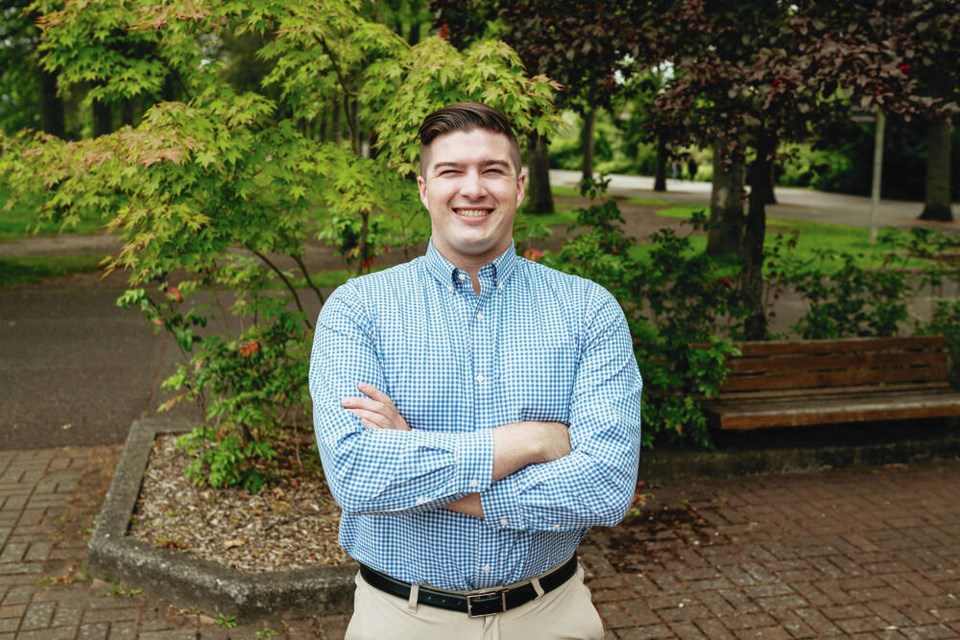Saying it was not a priority and that district staff had bigger fish to fry, Saanich council has dropped the idea of adding a lobbyist registry to its strategic planning list.
On Monday, council voted 5-4 against the motion, brought forward by Mayor Dean Murdock and Coun. Nathalie Chambers. It would have had Saanich staff look into what it would take to establish a registry.
Several councillors suggested it was a solution looking for a problem.
“There’s no shortage of issues that need to be addressed and we have limited financial and time resources, both as a council and amongst staff,” said Coun. Zac de Vries.
“I think it’s very important that we use those judiciously because we will never run out of problems.”
De Vries said council hadn’t received complaints about the lack of a registry, or even correspondence suggesting it was a good idea.
“It is important that we focus on what’s core to our residents,” he said, adding it might also deter some people from approaching council with questions or concerns.
Coun. Karen Harper said there are already tools such as freedom of information legislation and B.C. Elections’ reports into political donations to provide transparency.
“Quite frankly, anyone talking to me is lobbying me,” she said.
“I feel that, as a councillor, I have an obligation and I have a need to be free to talk to anyone, any resident, any constituent who wants to talk to me. And I feel that this type of thing would, in fact, have the opposite impact of what is suggested. For some people it would make them feel less comfortable.”
Councillors Colin Plant, Mena Westhaver and Susan Brice also voted against the idea.
A registry would have meant lobbyists who meet municipal politicians or district staff would be asked to register their details to promote transparency in lobbying and government decision-making.
The province allows for local governments to establish voluntary lobbyist registries. Surrey currently does that and lobbyists, who attempt to influence decision-making, can file a form with the city with information about themselves. But it’s not mandatory.
Local governments are not permitted to compel lobbyists to register.
University of Victoria political scientist Michael Prince said it is never a bad idea to shed more sunlight on how decisions are made at the local level, especially considering the value of real estate, the overheated markets for housing and commercial and industrial development.
He noted that when councils start talking about issues like missing middle housing and blanket zoning, it’s a good idea to know who’s meeting the people in the planning department or on council.
“It gives the public more of an ability to know what’s going on,” Prince said.
During the pandemic, he said, there was a clear disconnection between the community and local government when public meetings went online only and many are looking at this year as a chance to reconnect.
“I think this could be part of that, this would be another tool in the toolkit,” he said. “They could have a window into the dealings and feel confident that the decisions are being made in a fair way and that there’s no untoward lobbying or bias in the way decisions get made.”
Murdock said he was disappointed in the result as he felt the idea would help determine what exactly constitutes a lobbyist and would increase transparency.
“I respect the will of council and so will not be looking to find another way to introduce the lobbyist registry,” he said.
“I did hear some interest from my colleagues that publishing our calendars may be one way to provide that level of transparency about who we are meeting with as elected officials, so that’s something that I think is worth exploring.”
Murdock said the idea was not in response to any particular issue.
“There’s been no suggestion that there’s any wrongdoing or undue influence,” he said.
“This is proactively providing a mechanism for greater transparency. The more that we’re able to be open about all of those elements that inform the decision-making process, the more we’re able to build trust and to stand on a really solid foundation for decision making.”
Coun. Teale Phelps-Bondaroff, who voted in favour of adding a lobbyist registry, said it is important for the public to know who council is speaking with and what they’re talking about.
He also suggested it would help rookie councillors learning the ropes.
“As a new councillor, one of the challenges I had in the first few months of office, and I still struggle with, is knowing who I’m talking to. I don’t know if the person I’m talking to is a paid lobbyist or concerned [citizen],” he said.
>>> To comment on this article, write a letter to the editor: [email protected]



